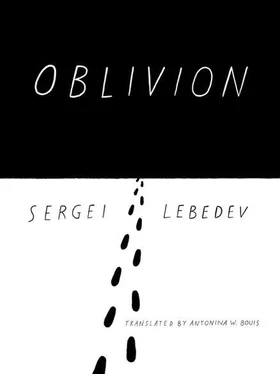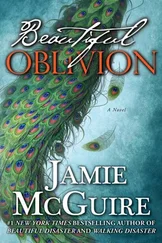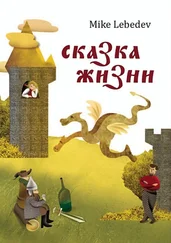Quite quickly—they had been at table about an hour—Grandfather II must have comprehended the situation; one remark about mothers not eating spicy food, and the tone in which it was said, was enough for him to see that pregnancy was dangerous for her. And here—everyone knew that Grandfather II was childless—he unexpectedly, after a long pause for thought, delivered a speech, revealing everything that was hidden, bringing himself into the family with full and permanent rights.
Grandfather II spoke hesitatingly, jumping from one subject to another, which in itself was amazing. His judgments, for all their reason and experience, were always somehow memorized, rote; he never supposed, never considered possibilities and probabilities, as if his blindness had taught him to trust only hard—in every sense of the word—facts. He valued the hardness as a quality even more perhaps than the content of the fact, which gave the impression that he was an encyclopedia reader, a lover of dates, metrical information, and legal definitions; but here he stepped onto the unfamiliar ground of conversation about life per se, and this gave his speech an additional sense of sincerity.
He spoke the way one might conjure away a toothache—repeating intentionally, leading away from the present with its constant reminders of the pain; lulling, calming the unborn child, as if giving the mother a relaxing massage. He began for some reason with the thirties in the village where he had lived; the former landowner there had a huge apple orchard. In the olden days, he let in the villagers, giving them a third of the harvest, and even though he always offered people allotments, no one took them—it was more familiar and easier to gather apples in someone else’s orchard in the fall. After the revolution the orchard belonged to the public, and every village family decided to have an apple tree in their yard; the old orchard trees were dug out and brought by cart to the village. It was fall, harvest time for trees, and the yellow-leaved crowns of the apple trees floated across the fields as if the orchard had decided to leave the area; not a single tree took—they were the wrong age, even though the villagers had dug big holes and lined them with hay and manure; the apple trees froze the first winter.
Grandfather II spoke with a sense of having been injured by the apple trees, by the laws of nature, according to which an old tree cannot take root in a new place; then he spoke of the North, of the fish spawn coming from the ocean, where the whole world becomes a fishing net, and it tries to break through the nets, seines, swim upstream through rapids, overcome the force of the flow, and its movements are so powerful that it breaks through—but it breaks through into death, it dies creating its descendants, as if there are obstacles that cannot be overcome without accepting first that you will die if you do.
But note that from Grandfather II’s speech it was impossible to tell whether he sympathized with the apple trees and the fish that died in the nets; they were echoes of his thoughts about himself. He had something planned and was now trying to prepare my family to accept his idea without naming it. He could barely keep up with his own speech, he had spent too much time, perhaps decades, deciding something and now the energy of those unspoken deliberations, liberated, unleashed, poured out of him, and he could only manage to place dams along the way, to separate it into flows, cover them with masks and euphemisms, so that whatever he had said to himself clearly and directly should not be heard in that directness.
Of course, it was listened to and heard differently; the people gathered around the family table sensed that Grandfather II was searching for an approach to what could resolve the general tension of many days, and they interpreted his speech as he was speaking not about himself but exclusively about the situation in which he found himself. The no longer fruitful apple trees, the dying fish spawning—there was something vague in this and it was not clear onto which side of the scales his words were to go. But suddenly, coming to his senses, he sharply changed course: to everyone’s surprise, he began to speak as if he had discovered all the unspoken trepidations—and tossed them aside. He said that she should definitely have the baby, medicine was advanced now, and the doctors were being overly cautious—he listed births in trolley cars, the lamp room of a mine shaft, a cornfield, on a Central Asian steppe near the space center, in a bakery, a dentist’s chair, a bomb shelter. A more attentive listener would have realized that Grandfather II was inventing these incidents, choosing the locations from the life he knew or from newspapers, but he filled and overpopulated the room with these unexpectedly born infants, the endless contractions of birth, until the listeners’ focus dissolved. Grandfather II was already promising to get Mother into the best hospital, an exclusive clinic for the elite, promising that everything would go well, as if he were a midwife himself; he spoke of himself, his childlessness—I end with myself and there is no continuation of me—and asked and begged her so persistently to have the baby, pleaded with her to fear nothing, that no one ever thought he was asking for himself.
This conversation settled it: she should have the baby; and this is how Grandfather II appeared among the people who stood at the source of my life. The contractions lasted a long time, I exhausted my mother; with every hour she grew weaker, we needed to be separated, she needed to be freed of me, but they couldn’t; she hemorrhaged, the bleeding would not stop, and the doctors later said that at one point they didn’t know whom to save, mother or child. I was born in part on the word of another, I was born a hair’s length away from death, mine and my mother’s; it was luck, but in hindsight it strengthened faith in Grandfather II’s successful presentiments.
And so Grandfather II entered our family; it was unspoken, but I was established as his grandson; through me came the connection, through me this relationship was created and subsequently retained. With his words, his vital force, embodied as certainty, Grandfather II redeemed me from nonexistence, made me real, opened doors for me; the connection of savior and saved, creator and created. In some sense I was relinquished to Grandfather II; many disagreements among those bringing up a child are over who has the final right of ownership of the child, and Grandfather II held this right of mental property, creating a slavery more subtle than treating a human being like a thing.
However, he did not rush to use it in my early years; as far as I understand, he removed himself, as if taking a break after the main deed was done. Additionally, he did not care for infants, he avoided being in the same room with them, as if they were disgusting to him, babbling, suckling, crying, screaming, unable to speak; unintelligible creatures to the ear.
He must have been waiting for the infant to grow up quickly, acquiring reason and speech—then he could talk to him, treat him like a small adult—that is, behave as Grandfather II behaved with everyone else. Infancy requires a different attitude: you don’t have to adore, flirt, make kissy noises, you can be aloof but have an inner conviction about the scale of the event; this person had not existed and now here he is, called upon to live. In fact, infants are a gauge of the ability to have serious and altruistic feelings between people: he is yet no one and at the same time already someone completely autonomous, a concentrated “ego” that will only be dissolved by the years. And if an adult can truly comprehend the revelation of a new life that belongs only to itself, if he has the inner hearing and vision, he would never encroach on a relationship with another; the other for him is a goal, not a means. So when an adult absolutely must do something with a small child and he has no idea how—then you can presume that this person is a seeker of use and profit in relationships; none of his usual methods of secretly manipulating others works with infants, and he is lost, in an uncomfortable situation fraught with exposure.
Читать дальше












